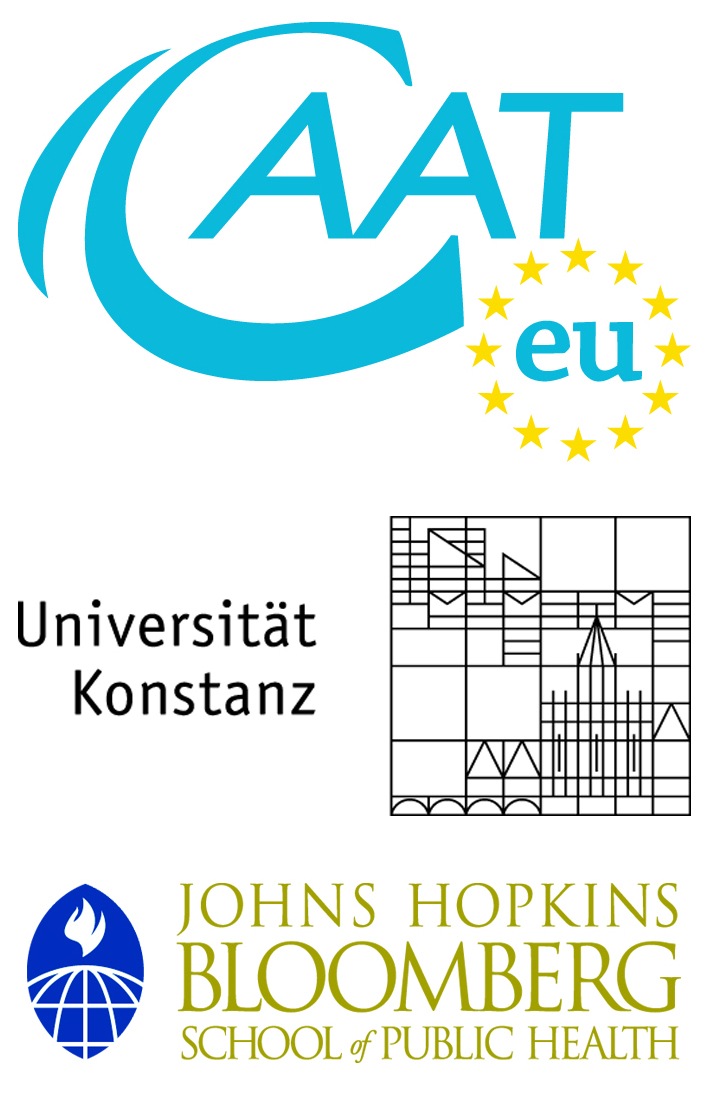CAAT-Europe

The Center for Alternatives to Animal Testing in Europe (CAAT-Europe), housed at the University of Konstanz, coordinates transatlantic activities to promote the development of new and improved methods in toxicology, to be a partner in strategy development, to provide platforms for different stakeholders, to exchange ideas, and to support the 3R’s principle of humane science in different ways. Dr. Thomas Hartung serves as program liaison representing Johns Hopkins, and Dr. Marcel Leist serves as the University of Konstanz co-director.
CAAT-Europe's key areas
- Consumer protection, human health
- New Approach Methodologies (NAMs)
- 3Rs (refinement, reduction, replacement)
- Toxicological testing strategies and systems toxicology
- Information and education on NAM and 3Rs

CAAT-Europe’s mission
Providing a platform for communication and networking among stakeholders (from industry, regulatory agencies, NGOs, and academia) to develop new concepts in regulatory toxicology.
Coordinating events (information days, symposia, workshops, and scientific sessions) on relevant topics in the area of New Approach Methodologies (NAMs) and regulatory toxicology, at international conferences (e.g. SOT, ESTIV and EUROTOX congresses).
Developing strategic projects with sponsors to promote humane science and NAMs in toxicology and biomedicine, e.g. road-maps for read-across approach, TTC.
Setting up transatlantic consortia for international research projects on alternative methods (e.g. EU-ToxRisk, RISK-HUNT3R, ASPIS).
Supporting the publication of reviews and original papers, and sponsoring of high impact field-related journals, e.g. ALTEX.
Developing a joint education program between Johns Hopkins and the University of Konstanz, e.g. student exchange, e-learning, collaboration to international graduate school (KORSB– chemical biology).
Providing scientific consultancy in legal text and guidelines as official external expertise service provider in the areas of science and technology options assessment for the European Parliament, and offering a lobbying platform for best available science.
